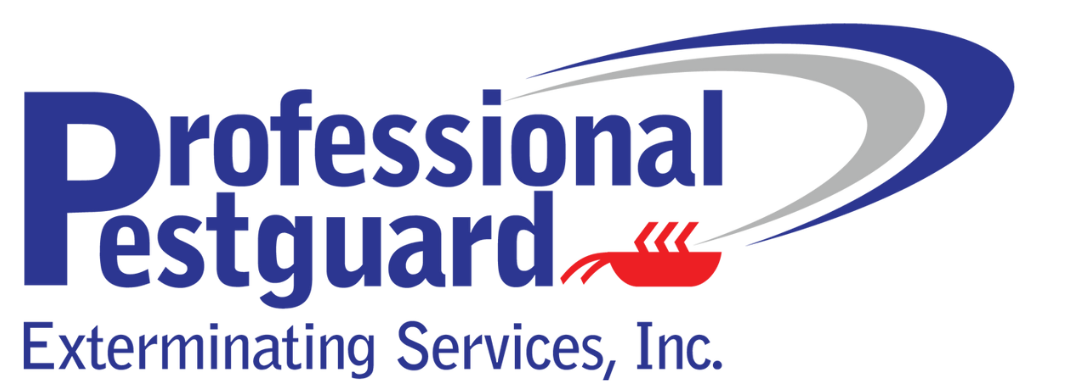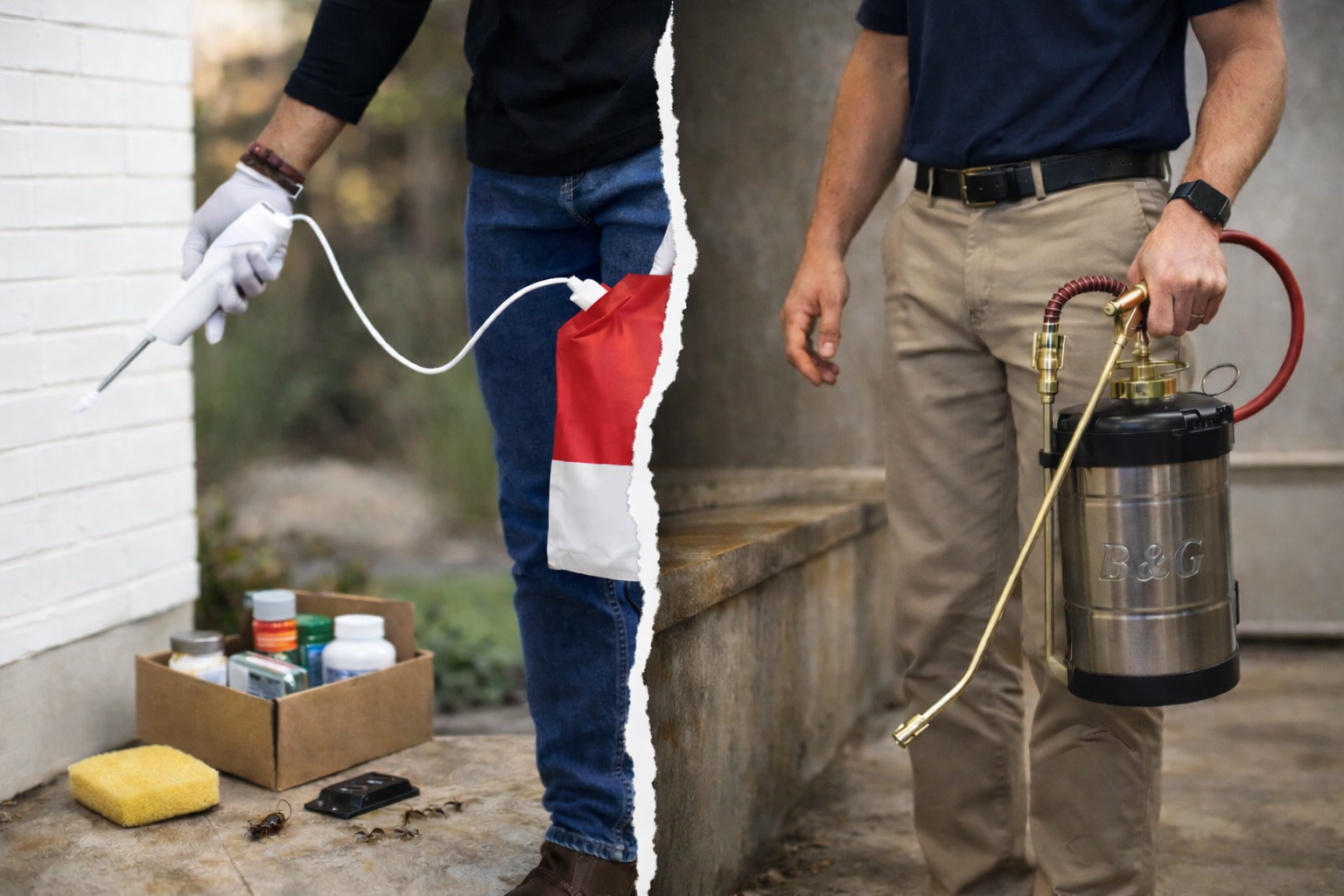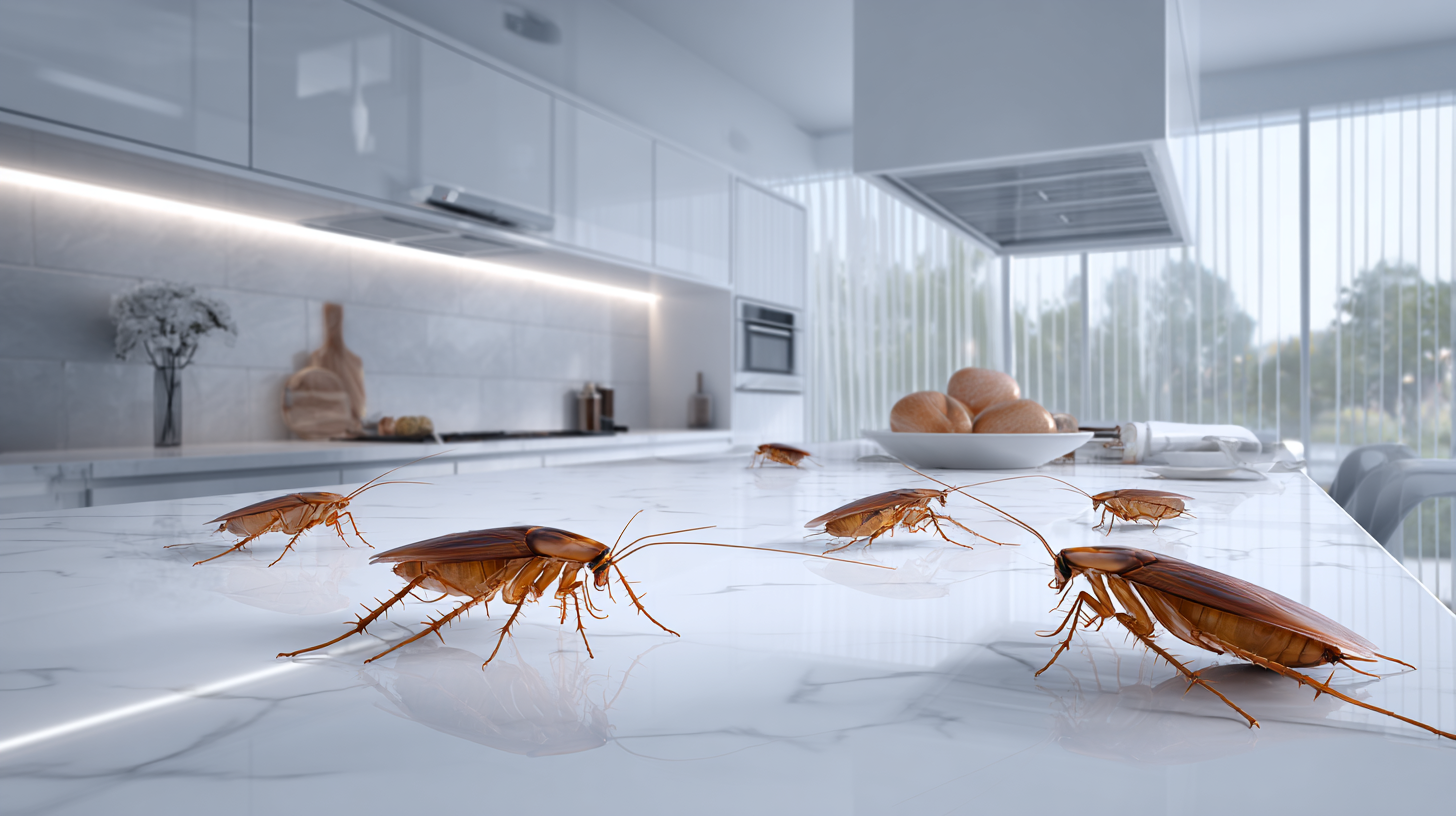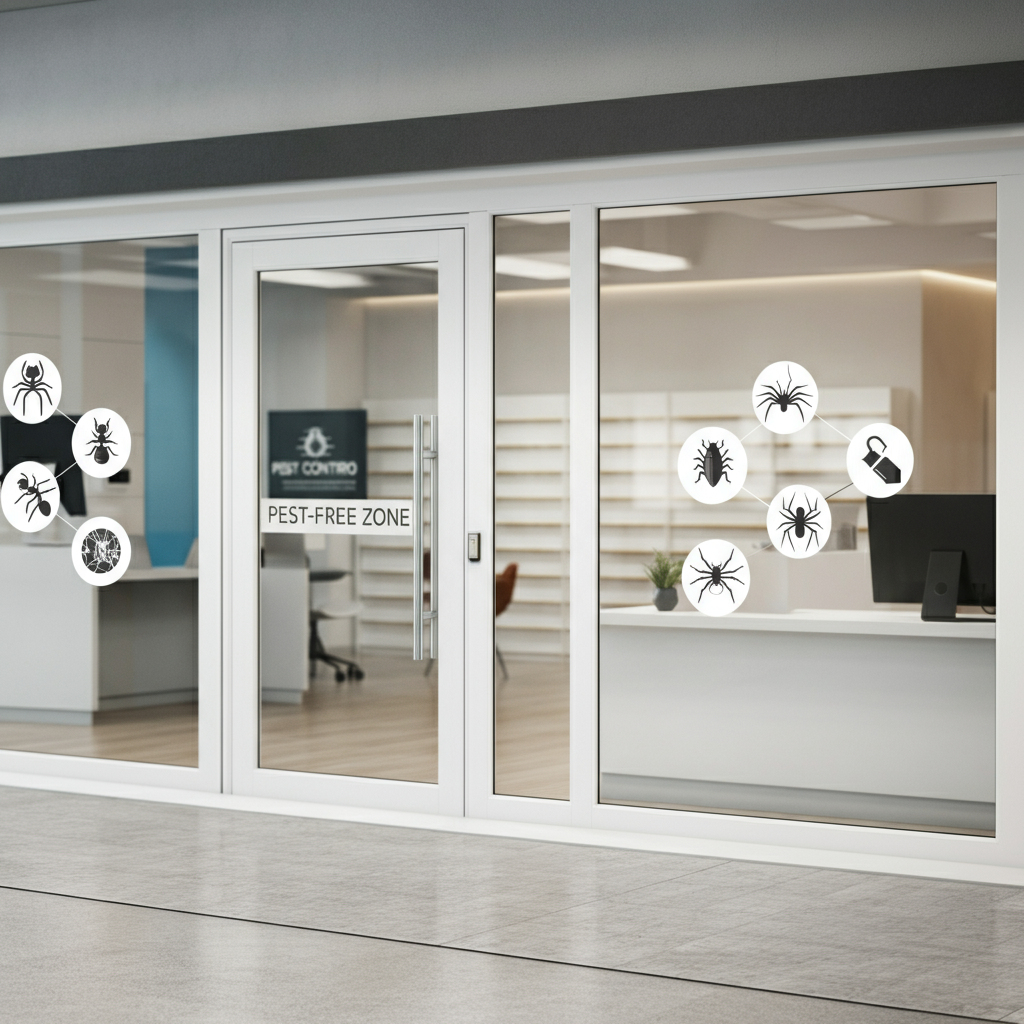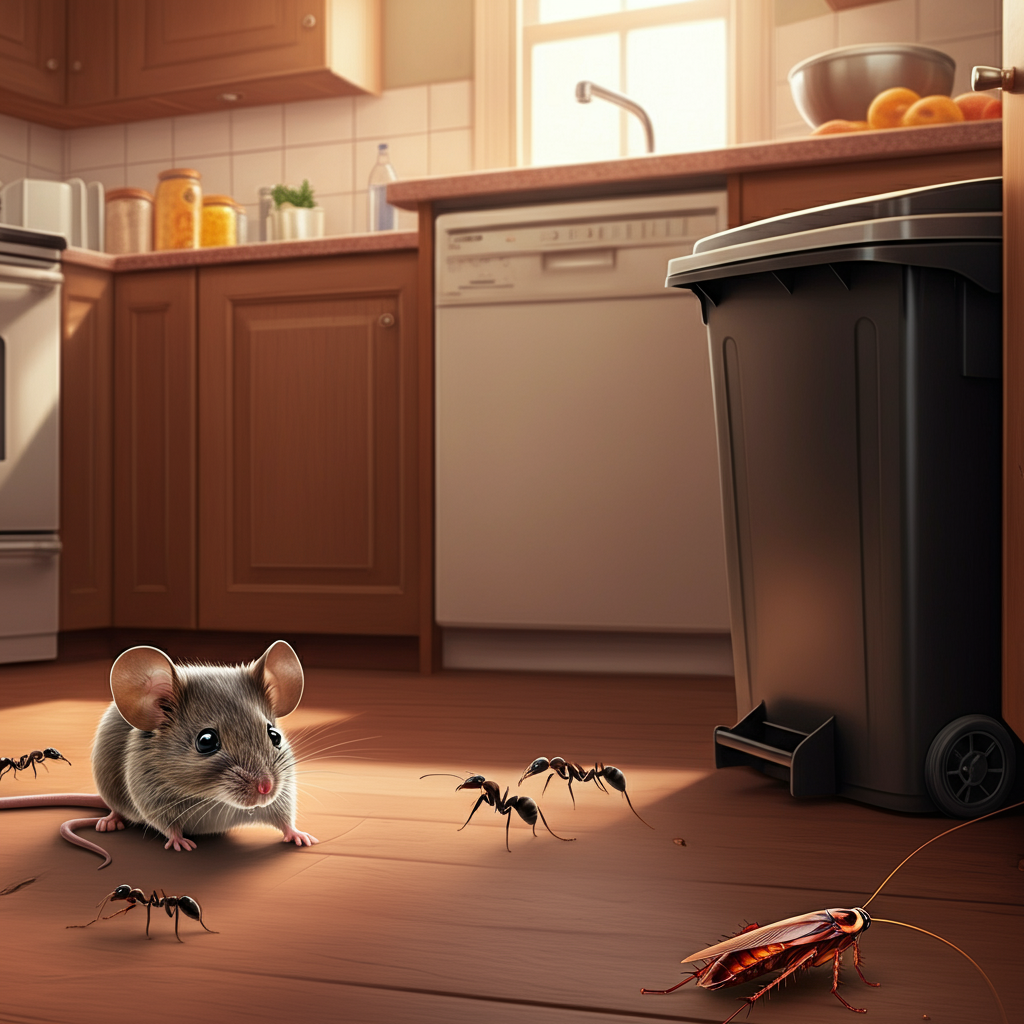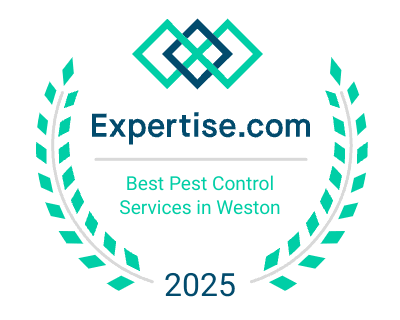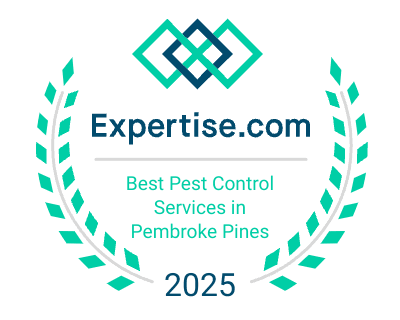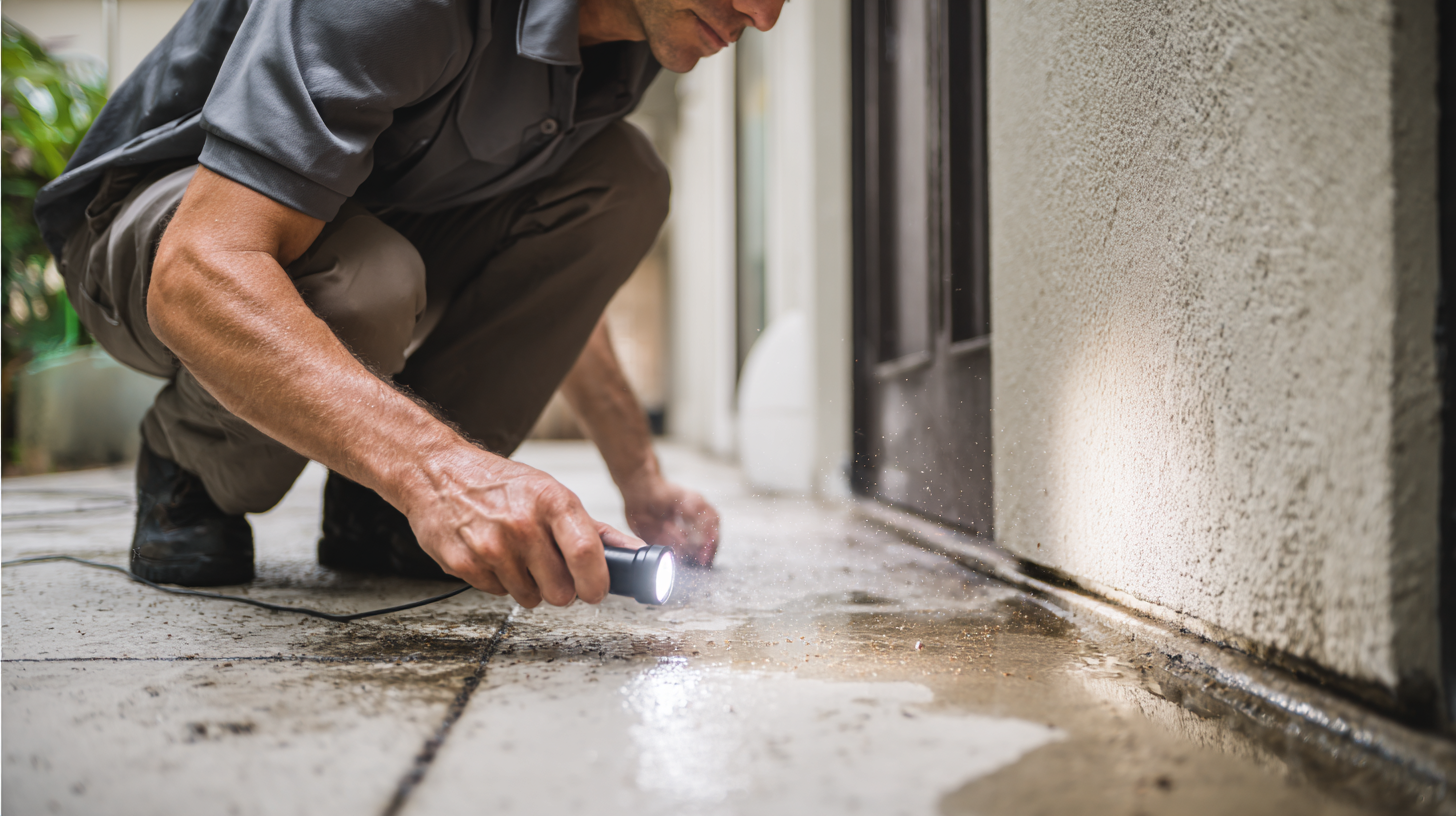
South Florida weather is unpredictable. One minute it’s sunny, and the next, a torrential downpour soaks your property. While the rain brings temporary relief from the heat, it also triggers an unwelcome event for homeowners and property managers: a sudden and massive ant infestation. If you’ve noticed an army of tiny invaders marching into your kitchen, bathroom, or office right after a storm, you’re not alone. The rain is a major catalyst for ant activity, pushing colonies indoors in search of dry ground and food.
Effective ant control begins with understanding why this happens and which pests you’re dealing with. For residents and businesses in South Florida, the most common culprits are ghost ants, big-headed ants, and carpenter ants. Each requires a different strategy for removal and prevention. This guide will help you identify these pests, understand their behavior, and learn the most effective methods for how to get rid of ants and keep them out for good.
Identifying Common Ants in South Florida
Knowing your enemy is the first step in winning the war against an ant infestation. Different ant species have unique habits, diets, and weaknesses. Misidentifying them can lead to ineffective treatments and prolonged frustration.
Ghost Ants
Ghost ants are notoriously difficult to see, earning them their spectral name. They are a significant nuisance pest in South Florida, frequently causing issues for homeowners.
- Appearance: Tiny, about 1.3 to 1.5 mm long. They have a dark head and thorax with a pale, almost translucent abdomen and legs. This coloring makes them seem to disappear and reappear as they move across different surfaces.
- Behavior: Ghost ants are known for their erratic, rapid movements. They often establish multiple colonies with many queens, a trait called polydomy. When a colony is disturbed, it can fracture into several smaller ones, making DIY ant control very challenging. They forage in distinct trails, often seen along baseboards, countertops, and cabinet edges.
- Nesting: Outdoors, they nest in damp areas like under logs, in firewood piles, and within flowerpots. Indoors, they seek moisture and are commonly found nesting behind baseboards, inside wall voids, and within potted plants. Kitchen ants and bathroom invaders are frequently ghost ants.
Big-Headed Ants
True to their name, big-headed ants are easily recognized by the oversized heads of their "major" workers, which act as the colony's soldiers.
- Appearance: These ants have two distinct worker types. The smaller "minor" workers are about 2 mm long, while the larger "major" workers can be up to 4 mm long with disproportionately large heads. They are typically reddish-brown.
- Behavior: Big-headed ants are aggressive foragers that build extensive networks of tunnels. They often create noticeable mounds of sand and soil debris at their nest entrances, which can disrupt lawns, pavers, and walkways.
- Nesting: They prefer to nest in the soil and can be found under stones, sidewalks, and building foundations. Their foraging tubes, made of soil and debris, often extend up the sides of buildings, providing a direct highway indoors.
Carpenter Ants
Perhaps the most feared of the three, carpenter ants can cause significant structural damage to properties, similar to termites.
- Appearance: They are one of the largest ant species, ranging from 6 to 12 mm long. They are typically black or reddish-black.
- Behavior: Carpenter ants do not eat wood; they excavate it to create smooth, gallery-like tunnels for their nests. An active carpenter ant infestation often produces a fine sawdust-like material called "frass," which can be found near nesting sites. You might also hear faint rustling sounds from ants in walls or ceilings at night.
- Nesting: They target wood that has been damaged by moisture or fungi. Common nesting sites include rotting window sills, damp crawl spaces, hollow doors, and soffits. A parent colony is often located outdoors in a tree stump or woodpile, with smaller satellite colonies established inside a nearby structure.
Why Rain Triggers Ant Invasions
A sudden downpour dramatically alters an ant's environment, forcing them to adapt quickly to survive. Several factors drive them to seek refuge inside your home or commercial building.
- Flooded Nests: Heavy rain saturates the soil and floods underground nests, forcing colonies to evacuate to higher, drier ground. Your property provides the perfect elevated and climate-controlled shelter.
- Disrupted Food Sources: Rain washes away the honeydew that many ants feed on and drowns the insects they prey upon. With their natural food sources gone, they turn to your kitchen and pantry for crumbs, spills, and unsecured food.
- Colony Fragmentation: For species like ghost ants, a flood can cause the colony to split. Queens and workers will grab eggs and larvae and float on debris to new locations. This can result in multiple new infestations appearing seemingly overnight in different parts of your property.
- Moisture and Foraging Trails: Ants use moisture to their advantage. Rainwater can create damp pathways along the foundation of your home, leading ants directly to tiny cracks and entry points you never knew existed.
DIY Ant Control: First Steps and Limitations
When you spot a trail of ants, your first instinct is to take immediate action. Some DIY methods can provide temporary relief, but they often fail to address the root cause of the ant infestation.
What You Can Do
- Sanitation: The most critical step is to eliminate food sources. Wipe up spills immediately, store food in airtight containers, keep pet food bowls clean, and empty trash regularly.
- Exclusion: Inspect your property's exterior for cracks in the foundation, gaps around utility lines, and torn window screens. Seal these entry points with caulk or weatherstripping.
- Moisture Control: Fix leaky pipes, dripping faucets, and clogged gutters. Ensure your AC unit drains properly and that soil slopes away from your foundation to prevent moisture buildup.
- Strategic Baiting: For some species, over-the-counter ant baits can be effective. Worker ants carry the slow-acting poison back to the nest, which can eliminate the colony. However, using the wrong bait for the species can be useless.
When DIY Fails
Liquid sprays and repellents are often counterproductive. They kill the ants you see but can cause "budding" in many species, where the colony fractures and spreads, making the problem worse. Furthermore, if you can’t correctly identify the ant, you might be using a product that has no effect. If you see ants in walls or suspect a carpenter ant problem, it’s time to call a professional ant exterminator.
Professional Ant Control: The Permanent Solution
For a persistent or large-scale ant infestation, a professional pest control service is essential. A licensed technician has the expertise and tools to deliver effective, long-term ant control.
- Thorough Inspection and Identification: A professional starts with a detailed inspection to correctly identify the ant species, locate nesting sites, and determine the extent of the infestation.
- Targeted Treatments: Based on the species, they will use specific baits and non-repellent treatments that ants carry back to the colony without detecting a threat. This is far more effective than contact-kill sprays.
- Exclusion and Prevention: A professional ant exterminator will identify and seal entry points you may have missed, providing a crucial layer of defense.
- Integrated Pest Management (IPM): IPM is a comprehensive approach that combines targeted treatments with long-term prevention strategies, such as moisture control and habitat modification, to make your property less attractive to pests.
- Ongoing Monitoring: A good pest control plan includes follow-up visits to monitor for new activity and ensure the infestation is completely resolved.
Why Choose Professional Pestguard for Ant Control in South Florida?
When your home or business is under siege by ants, you need a reliable partner you can trust. Professional Pestguard is a top-rated pest control provider serving Weston, FL, and the greater South Florida area, including Broward and Miami-Dade counties.
We understand the unique challenges that local homeowners and property managers face. Our approach to ant control is built on expertise, reliability, and a commitment to customer satisfaction.
- Local Expertise: We are experts in South Florida pests. We know how ghost ants, big-headed ants, and carpenter ants behave in our specific climate and how to create effective, customized treatment plans.
- Rapid Response: We know pest problems are urgent. Our team responds quickly to inspect your property and implement a solution that brings you immediate relief.
- Customized IPM Plans: There is no one-size-fits-all solution for pest control. We develop tailored Integrated Pest Management (IPM) plans for both home pest control and commercial pest control, focusing on long-term prevention.
- Advanced & Eco-Conscious Options: We use the latest industry-leading products and techniques, including environmentally friendly options that are safe for your family, pets, and tenants.
- Licensed and Insured: Our technicians are fully licensed, insured, and undergo continuous training to stay at the forefront of the pest control industry. Your property is in safe hands.
Frequently Asked Questions (FAQs)
1. How long does it take to get rid of an ant infestation?
The timeline depends on the species and the size of the infestation. A simple ghost ant problem might be resolved in one to two visits, while a large carpenter ant colony could require more extensive treatment over several weeks.
2. Are your ant control treatments safe for pets and children?
Yes. We prioritize the safety of your family and pets. We use targeted application methods and select products with low toxicity. Our technicians will provide specific instructions, such as keeping pets out of a treated area for a short time until the product has dried.
3. Why do I still see ants after a treatment?
It is normal to see some ant activity for a short period after treatment, especially with baiting systems. This is a sign that the ants are taking the bait back to the colony. If activity persists beyond the timeframe your technician provided, we will return to reassess.
4. Can you help with my commercial property?
Absolutely. We provide commercial pest control services for a wide range of properties, including office buildings, retail centers, restaurants, and HOA communities. We work closely with property managers to maintain a pest-free environment for tenants and customers.
5. How can I prevent ants from coming back?
Prevention is key. We recommend a regular pest control service plan, diligent sanitation, sealing potential entry points, and managing moisture around your property. Our team will provide you with a detailed list of recommendations.
Take Back Your Property from Ants Today!
Don't let a rainstorm lead to a full-blown ant infestation. Protect your home, investment, and peace of mind with expert ant control from Professional Pestguard. Our team is ready to provide a fast, effective, and lasting solution tailored to your specific needs. Whether you’re a homeowner battling kitchen ants or a property manager dealing with complaints, we are here to help.
To schedule your free, no-obligation quote, contact our friendly team today. You can reach us by phone at (954) 389-6107 or by visiting our website at professionalpestguard.com to fill out a contact form. Our experts will assess your situation and recommend the best course of action to eliminate ants and prevent them from returning.
An ant-free property is just a phone call away. Trust the local experts at Professional Pestguard to deliver the results you deserve.
